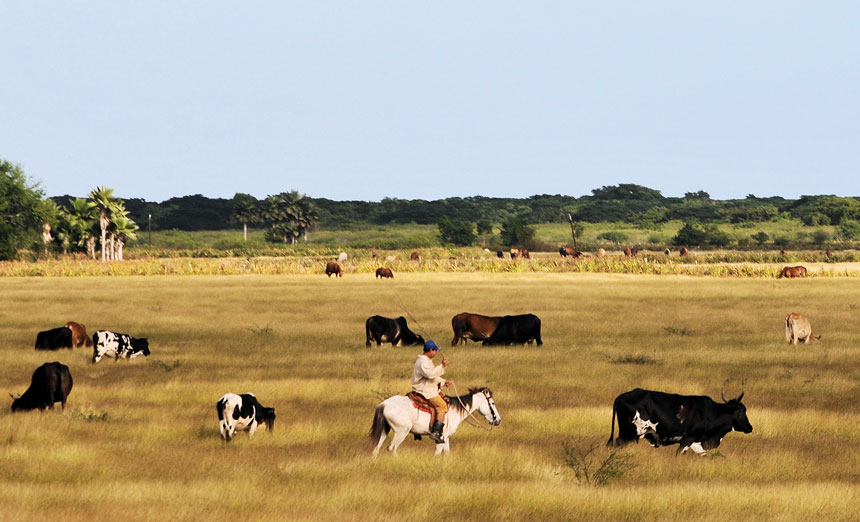
In the not-too-distant future, the province of Las Tunas will have no cattle to slaughter for social consumption, gastronomy, and diets for the population.
In 2023, this territory saw a desolate panorama of the theft and slaughter of large livestock, as more than eight thousand head were illegally killed, a truly horrifying figure, which shows the impunity with which the slaughterers act and the weaknesses of those who have bovine animals in their custody.
If the number of cattle slaughtered is added to the more than 19,800 deaths of animals, then the number is close to 27,000 head lost; without doubt, a remarkable mass and it is striking that 60 percent of the deaths are of adult animals, something unusual because usually the largest number of losses corresponds to calves.
And there is something to be taken into account here: neither the slaughter is natural nor the deaths are natural because the causes are malnutrition, lack of water, management problems, and deficiencies that depend on the farmers themselves.
When analyzing the issue, the provincial Party Bureau debated a report in which it irrefutably pointed out the poor management of the agricultural delegations in the municipalities in the face of the complicated issue, the lack of security measures in the production bases, the lack of care for the cattle and the absence of patrols and surveillance in the paddocks, because the current practice is to slaughter the cattle in the pasture, and not in the pens as was more common in the past.
It is also clear that neither the law nor the seizures are practically not applied in the face of the indiscipline of the cattle owners, who often go from one place to another without anyone to look after them, and worst of all, there is no commitment to end the scourge of theft and illegal slaughter.
Ninety-five percent of the beef herd in the province is in the hands of the private sector, but compared to the state sector, the biggest problems of theft and slaughter are in the state units, which explains the lack of ownership in this regard.
Another problem is the lack of conditions for the safe keeping of livestock, a weakness of the authorities involved in the matter who do not demand to create them, let alone not to allow them to own cattle that are easy prey for those who engage in this illegal activity.
How many liters of milk and meat have been lost in the province as a result?
So far, no formula has been found to reduce theft and slaughter to a minimum or even eliminate it. And that is a challenge for the province of Las Tunas in 2024.





